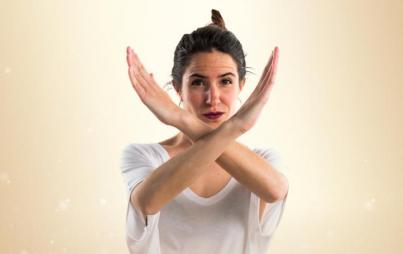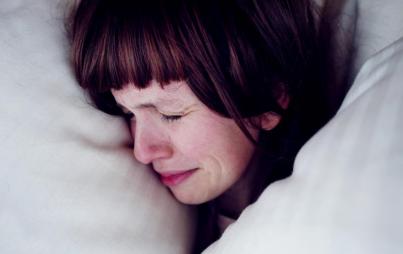
My pain is vaild.
I cried a lot that weekend. There were pills for the pain, but there was nothing that could help me forget that my boyfriend didn’t truly care about me.
I first noticed the bump on the inside of my left hand months before I informed, well, anyone. It was slightly above-center, no larger than a bead — like the pearls on my favorite necklace — but painful.
I was working as a full-time office assistant and receptionist, which meant typing on a computer was a constant necessity. With every reach of my fingers, I’d feel a lightning bolt of surging energy, singeing my nerves from the tips of my nails to the muscle of my shoulder.
I took Tylenol and Advil and any other over-the-counter no-name brand I could get my hands on, but the pain never subsided — and to my dismay, the bump continued to grow.
Eventually, I informed my then-boyfriend. We were living together (we worked at the same beer and wine distributor), and before we dated, I had considered him one of my best friends.
I imagined sympathy and concern and quick recommendations, as he was the type who liked to have a solution for every problem.
Instead, he seemed bothered. Find a doctor was the only piece of advice he had to offer. So I set about looking up a family practitioner who, in turn, referred me to a specialist.
The bump was initially diagnosed as a cyst, which would require surgical removal. I asked my partner to take me to the hospital, but he refused, citing work and a slew of work-related obligations that he absolutely could not miss. I didn’t argue, because I understand being career-driven.
Instead, my best friend took me to the hospital, and she was there to pick me up afterward. She drove me to the condo I shared with my boyfriend, steered me to the couch, brought me water, and administered the pain pills I so desperately needed.
I vaguely remember him walking through the door, asking my best friend how the procedure went. She explained that there were complications; I assisted by slurring my words and attaching wayward sentences together. The surgery was meant to be only half an hour long, and I was meant to be awake all throughout.
Instead, they put me under unexpectedly and I was in the operating room for over three hours. The doctor couldn’t tell me (or my best friend) much of anything, other than they had to run some tests and I would be in a significant amount of pain. I was ordered to rest during the weekend and, on Monday, I would see him at his office for results and further explanation.
My best friend left, meaning I was to be in the care of my loving boyfriend. At least, that is what I had envisioned happening — I had done (and would do) the same for him. Every time he became ill, every doctor’s visit, every back injury and every ache in between, I would care for him and comfort him and nurse him back to health.
Instead, I was yelled at. He refused to bring me soup or water or pain pills because, after all, it was just my hand. I could walk. My legs worked. I didn't need help.
He left me alone, for hours, while he went to play poker with a group of friends because I was exaggerating. How much pain could I be in, really? Why was I selfishly seeking attention? Why was I acting like such a girl?
I cried a lot that weekend. There were pills for the pain, but there was nothing that could help me forget that my boyfriend didn’t truly care about me. I couldn’t swallow a drug and turn my partner into someone who not only wanted to take my pain away, but believed that I was in pain at all. There wasn’t a prescription a doctor could write that would make my despair believable. There wasn’t a cure for my boyfriend’s apathy.
On Monday, he drove me to the surgeon’s office. We sat in silence as he took a right off the freeway and a left on that one road I can never remember. We walked into the office building separately. We sat apart from one another. When we were escorted into the examination room, we didn’t say a single word to one another. He sat on the opposite side of the room.
And then the doctor arrived.
He prefaced the test results by asking how I was feeling. Before I could even get the words out, I started crying. Every tear embodied my exhaustion, anger, sadness, hatred, pain. Every tear was a liquid representation of the words I couldn’t say, the disappointment that had no words.
The doctor stopped me, reaching across from his desk and putting his hand on mine. He said it was OK, and then described the reality of the situation.
The cyst wasn't a cyst — it was a tumor. They put me under because he didn’t know if the tumor was benign or malignant, and he didn’t know if they were going to be forced to amputate my hand. In order to remove every last piece of the tumor, he had to cut into the muscle of my hand, which is why the pain was so excruciating.
He received my test results that morning, and thankfully it was benign — a type of reoccurring tumor that I will deal with for the rest of my life, yes, but it will never be cancerous.
I was both vindicated and furious. My boyfriend stood up and brought his chair next to mine, his hand on my leg while the doctor continued to explain the circumstances and future plans. I looked in his eyes and saw shame and regret; I knew he felt bad.
But his sympathy was hollow. His guilt was empty. I could not forget.
I have often wondered if I would have been treated with more dignity and humanity if I were a man. I know that if the roles had been reversed, I would have been caring and understanding and more than happy to make my boyfriend as comfortable as possible. And, of course, in those moments, it would be “because I’m a woman” that I am so quick to love and support and tend to those I care about.
But that’s simply not true. Gender does not determine an individual’s tendency towards sympathy or apathy. Gender does not determine the validity or amount of pain a person is in. Gender should never determine the amount of care you receive.
My pain matters, not because I’m a woman.
My pain matters because I’m a human being.








